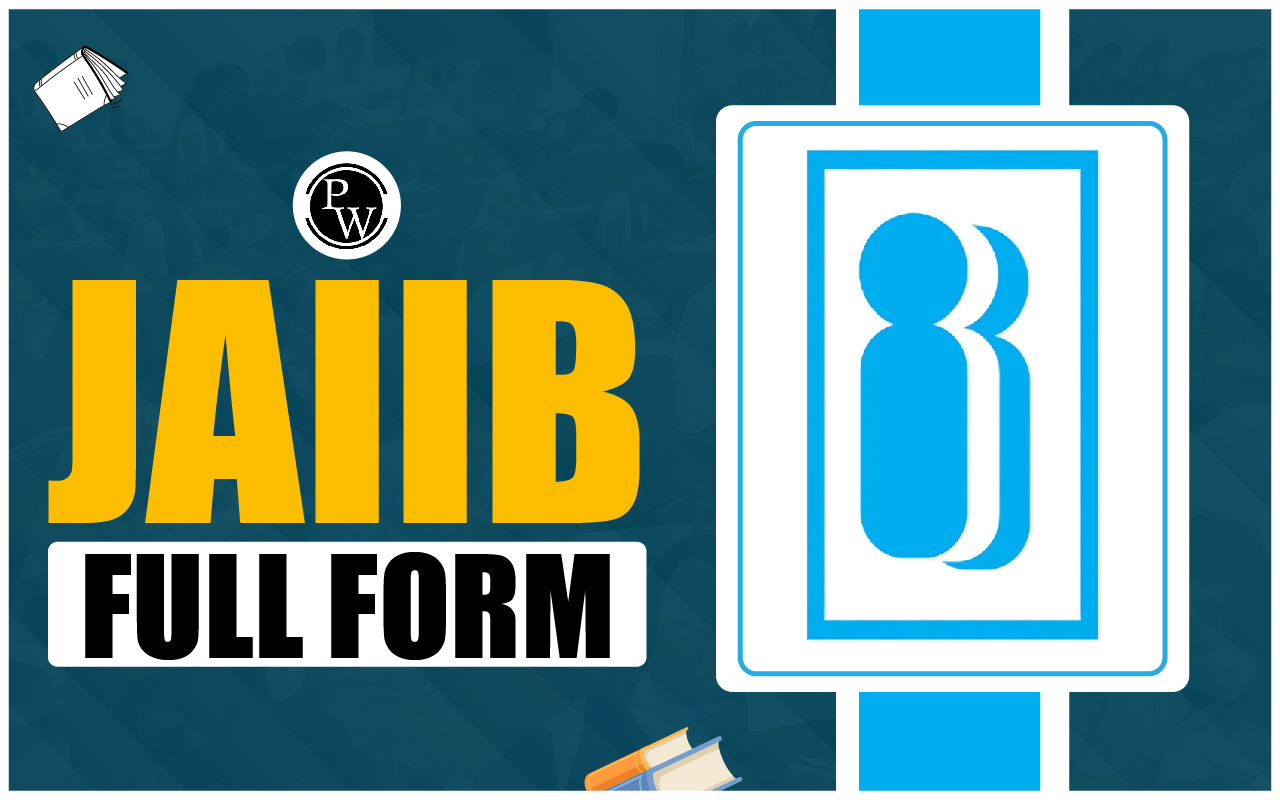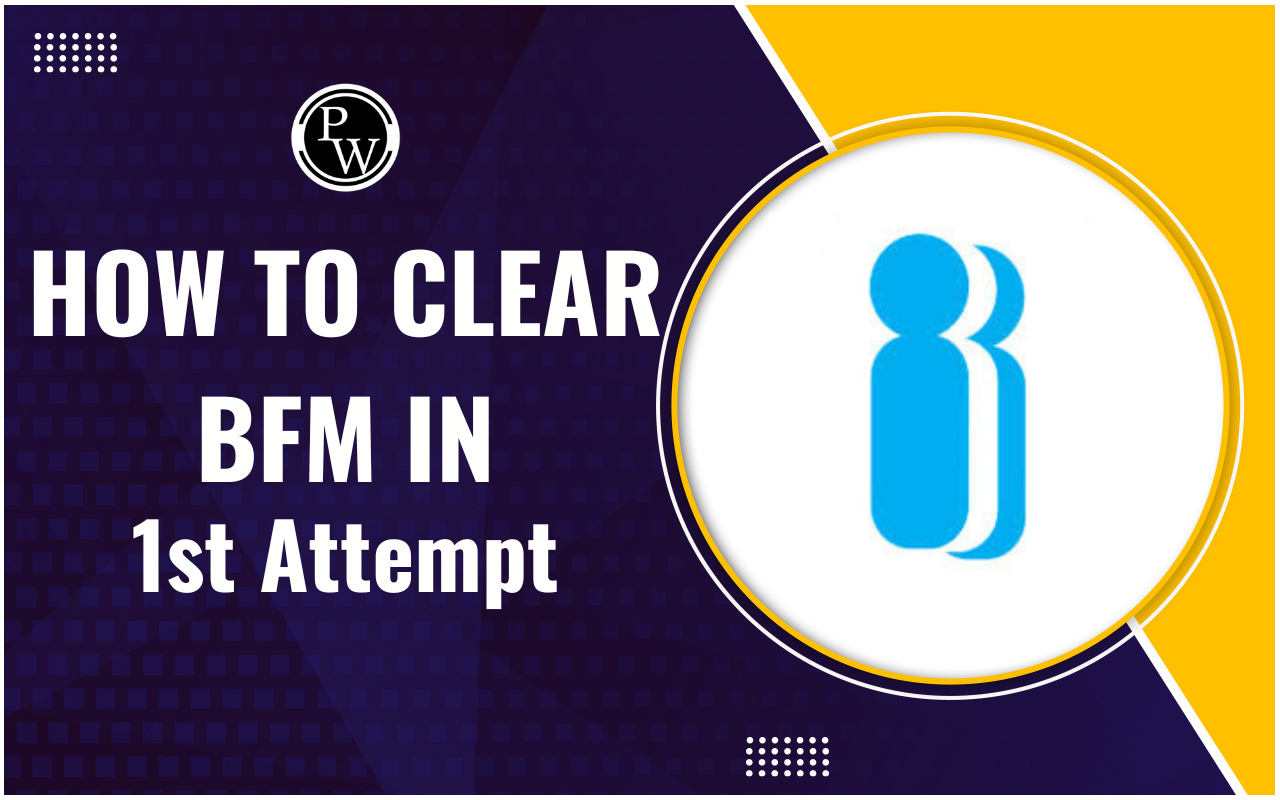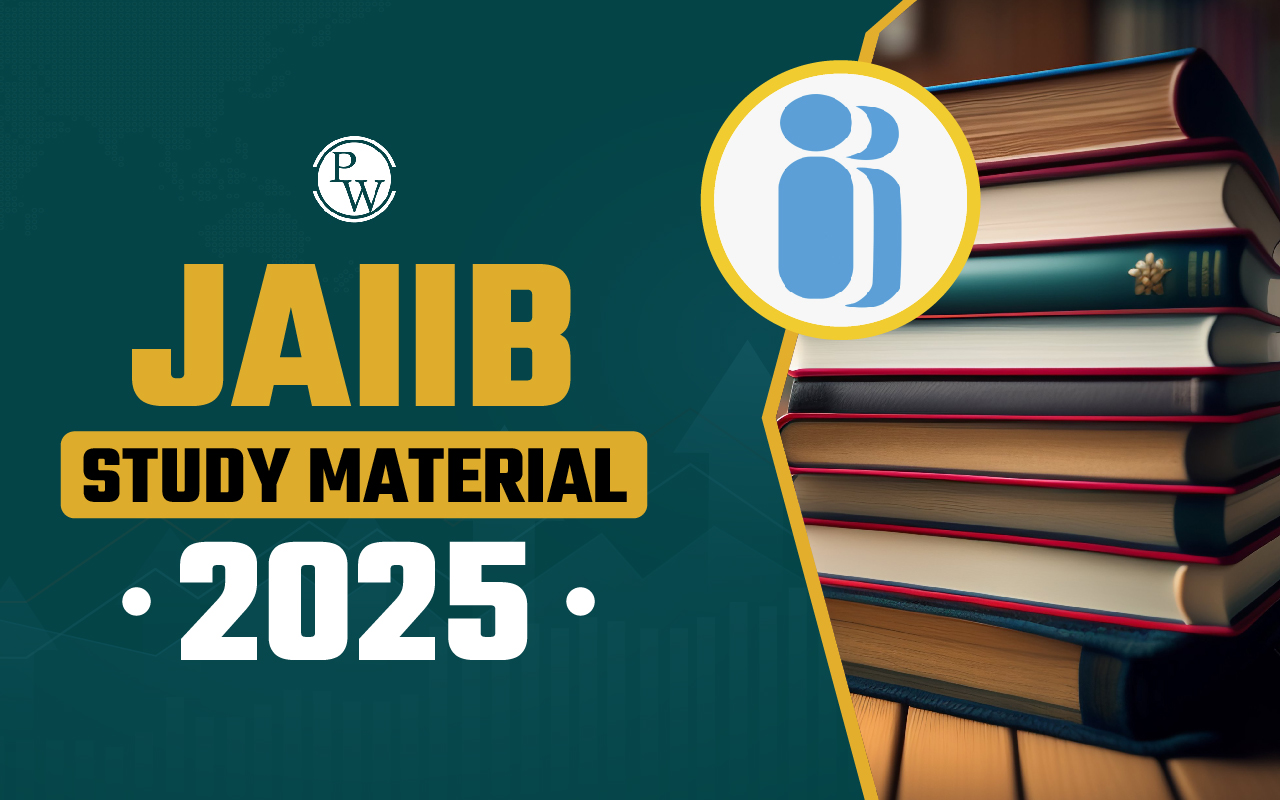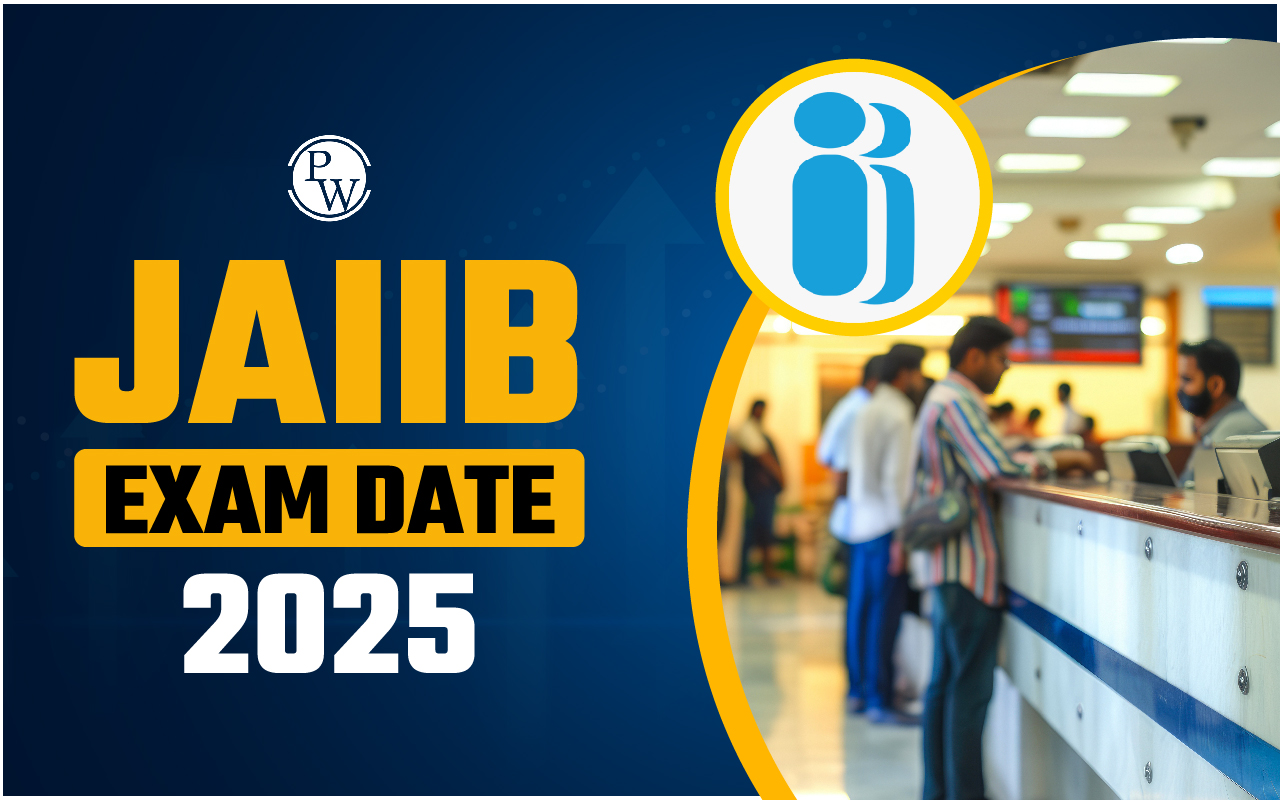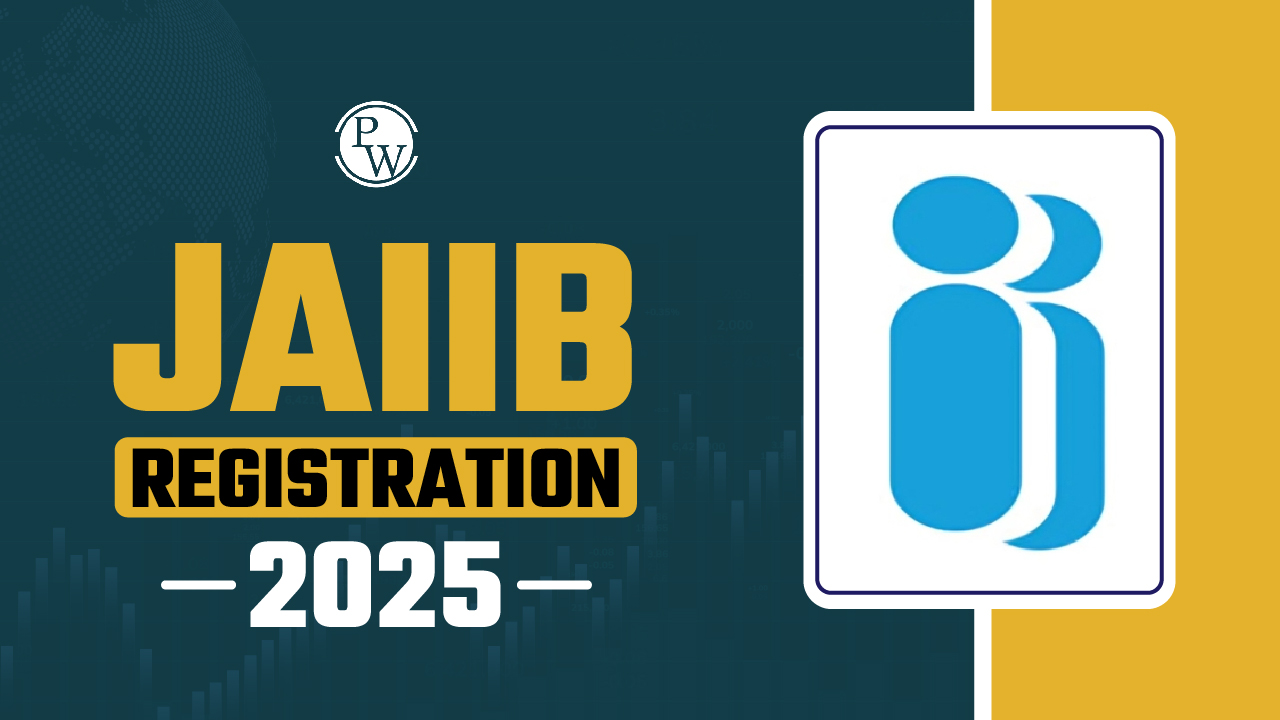
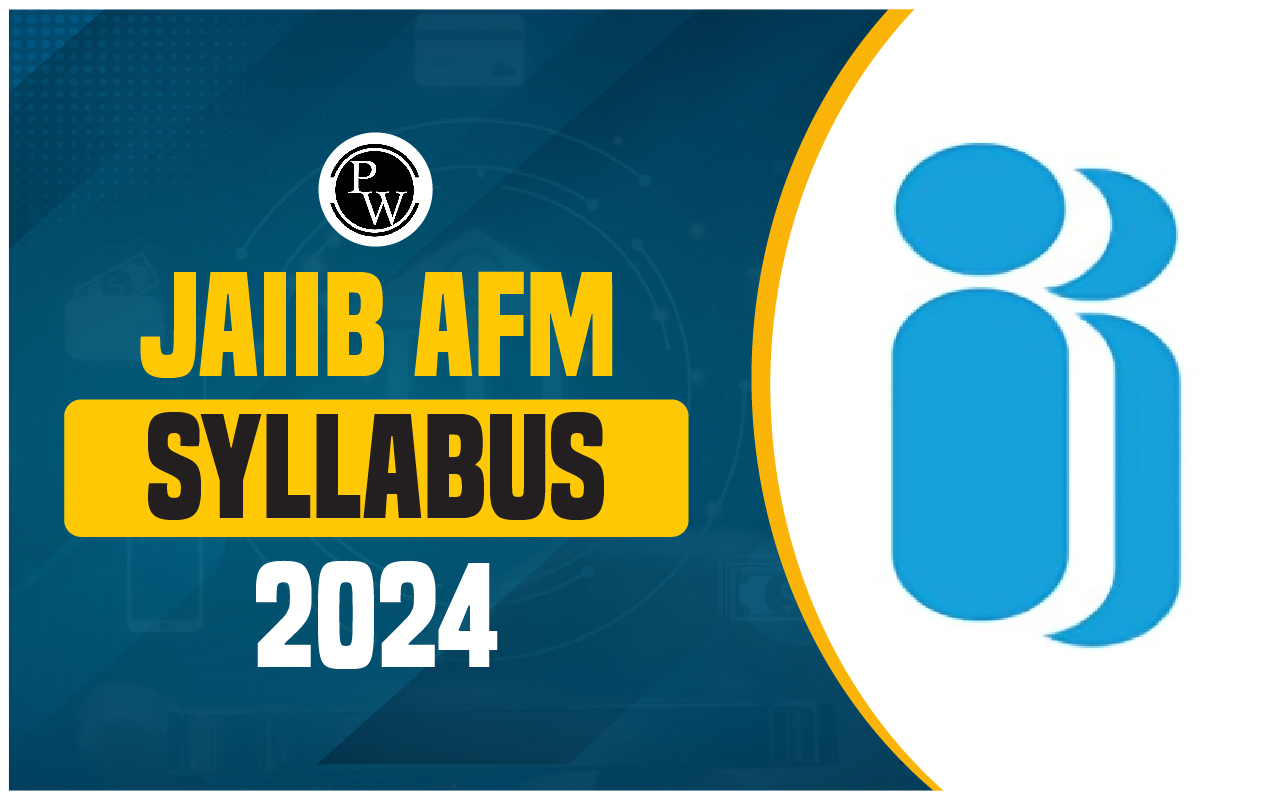
JAIIB AFM Syllabus 2024 : The JAIIB exam (Junior Associate of the Indian Institute of Bankers), aims to provide finance and banking professionals with a strong foundation in the core concepts of banking. Bankers who are planning to appear in the JAIIB AFM Paper this year must be aware of the updated syllabus of JAIIB AFM 2024. JAIIB AFM Exam 2024 for the October cycle will be held on 27th October 2024.
JAIIB AFM Syllabus 2024
The Indian Institute of Banking and Finance (IIBF) conducts the JAIIB AFM Paper of the Indian Institute of Banking (JAIIB) to promote professional excellence among banking professionals. Every year JAIIB Exam is conducted twice. There are four compulsory papers in the exam and you have to clear each of them to get JAIIB certificate. The JAIIB Accounting and Financial Management for Bankers Paper consists of multiple choice questions (MCQ) and you need to score at least 50 out of 100 marks to complete each paper. Knowing the JAIIB syllabus and planning the syllabus carefully is the key to effective preparation. All the necessary information about JAIIB AFM Syllabus 2024 can be found in the article below.JAIIB AFM Syllabus, Accounting and Financial Management for Bankers (AFM)
The third paper in the JAIIB Syllabus 2024 is “Accounting and Financial Management for Bankers” (AFM). This paper is divided into four modules, each covering specific topics. Here is a breakdown of the modules and their respective topics: Paper 3 consists of four Modules, and these are as follows:- Module A- Accounting Principles and Processes
- Module B- Financial Statement and Core Banking Systems
- Module C- Financial Management
- Module D- Taxation and Fundamental of Costing
| JAIIB AFM Syllabus 2024 | |
| Subjects | Topics |
| Module A- Business Mathematics and Finance | |
| Definition, Scope and Accounting Standards including Ind AS |
|
| Basic Accountancy Procedures |
|
| Maintenance of Cash/Subsidiary Books and Ledger |
|
| Bank Reconciliation Statement |
|
| Trial Balance, Rectification of Errors and Adjusting & Closing Entries |
|
| Depreciation & its Accounting |
|
| Capital and Revenue Expenditure |
|
| Bills of Exchange |
|
| Operational Aspects of Accounting Entries |
|
| Back Office Functions/Handling Unreconciled Entries in Banks |
|
| Bank Audit & Inspection |
|
| Module B – Financial Statement and Core Banking Systems | |
| Balance Sheet Equation |
|
| Preparation of Final Accounts |
|
| Company Accounts – I |
|
| Company Accounts – II | Form of Balance Sheet, Impact of Ind AS on Financial Statements |
| Cash Flow & Funds Flow | Cash Flow, Funds Flow Statement, Cash Flow Statement, Fund Flow and Cash Flow Analysis |
| Final Accounts of Banking Companies | Definition and Functions of a Bank, Requirements of Banking Companies as to Accounts and Audit, Significant Features of Accounting Systems of Banks, Principal Books of Account, Preparation and Presentation of Financial Statements of Banks, Accounting Treatment of Specific Items, Preparation of Profit and Loss Account, Comments on Profit and Loss Account Items, Important Items of Balance Sheet. Disclosure Requirements of Banks to be Added as Notes to Accounts, Disclosures Prescribed by RBI Under Basel-III, Banks Listed on a Stock Exchange, Implementation of Indian Accounting Standards (Ind AS) |
| Core Banking Systems & Accounting in Computerised Environment | Meaning of Computerised Accounting, Features of Computerised Accounting, Terms Used in Computerised Accounting, Difference between Computerised and Manual Accounting, Advantages and Disadvantages of Computerised Accounting, Functions Performed by Computerised Accounting Softwares Available in the Market, Computerisation – Scope and Experiences in Banking, The Core Banking Components, Information Security, Internet and World Wide Web – Influences on Banking |
| Module C – Financial Management | |
| An Overview of Financial Management | Forms of Business Organisation, Financial Decision making in a Firm, Objectives of Financial Management, The Fundamental Principles of Finance, Building Blocks of Modern Finance, Risk-Return Trade off, Agency Problem in Financial Management, Business Ethics & Social Responsibility, Organisation of the Finance Function, Relationship of Finance to Economics and Accounting, Emerging Role of the Financial Manager in India |
| Ratio Analysis | Meaning of Accounting Ratios, Classification of Ratios, Uses of Accounting Ratios, Limitations of Accounting Ratios, Calculation and Interpretation of Various Ratios, Different Users and Their Use of Ratios |
| Financial Mathematics - Calculation of Interest & Annuities | What is Simple Interest? What is Compound Interest? Fixed and Floating Interest Rates, Front-end and Back-end Interest Rates, Calculation of Interest Using Products/Balances, What are Annuities? Calculating the Future Value of an Ordinary Annuity, Calculating the Present Value of an Ordinary Annuity, Calculating the Future Value of an Annuity Due, Calculating the Present Value of an Annuity Due, Repayment of a Debt |
| Financial Mathematics - Calculation of YTM | Meaning of Debt, Introduction to Bonds, Terms Associated with Bonds, Types of Bonds, Optionality in Bonds, Valuation of Bonds, Bond Value with Semi-annual Interest, Current Yield on Bond, Yield-to-Maturity of Bond, Theorems for Bond Value, Illustrations, Duration of Bond, Properties of Duration, Bond Price Volatility, Problems and Solutions |
| Financial Mathematics - Forex Arithmetic | Fundamentals of Foreign Exchange, Indian Forex Market, Direct and Indirect Quote, Some Basic Exchange Rate Arithmetic, Forward Exchange Rates |
| Capital Structure and Cost of Capital | Meaning of Capital Structuring, Leverage/Gearing, Factors Influencing Decision on Capital Structuring, Theories/Approaches on Capital Structuring, Net Income Approach, Net Operating Income Approach, Traditional Position, Assumptions in the Approaches on Capital Structuring, Taxation & Capital Structure, Cost of Debt, Preference, Equity, Determining the Proportions, Weighted Average Cost of Capital (WACC), Factors Affecting the WACC, Weighted Marginal Cost of Capital, Determining the Optimal Capital Budget, Divisional and Project Cost of Capital, Floatation Cost and the Cost of Capital, Misconceptions surrounding the Cost of Capital |
| Capital Investment Decisions/Term Loans | Discounted and Non-Discounted Cash Flow Methods for Investment Appraisal, Basic concepts of term loans, Deferred payment Guarantees, Project financing, Difference between term loan appraisal and project appraisal |
| Equipment Leasing/Lease Financing | Meaning of a Lease, Features of a Lease, Types of Leases, Rationale for Leasing, Contents of a Lease Agreement, Legal Aspects of Leasing, Finance Leases, Operating Leases, Accounting of Lease Transaction in the books of Lessor and Lessee, Leasing as a Financing Decision |
| Working Capital Management | Working Capital Cycle, Cash and Marketable Securities, Accruals, Trade Credit, Working Capital Advance by Commercial Banks, Cash Budget Method of Lending, Regulation of Bank Finance, Public Deposits, Inter- Corporate Deposits, Short-term loans from Financial Institutions, Rights Debentures for Working Capital, Commercial Paper, Factoring & Forfaiting |
| Derivatives | Characteristics & Functions of Derivatives, Users of derivatives, Futures, Forward Rate Agreement (FRA), Swaps, Options |
| Module D – Taxation and Fundamental of Costing | |
| Taxation: Income Tax/TDS/Deferred Tax | Overview of Income Tax Act, Basic Overview of Deductions in Respect of Certain Incomes & Deduction 80QQB, 80RRB, 80TTA & 80U, TDS/TCS, Returns, Refund & Recovery |
| Goods & Services Tax | Meaning of Direct & Indirect Tax, Introduction to GST |
| An Overview of Cost & Management Accounting | Cost Accounting: Evolution, Meaning, Objectives and Scope, Concepts of Costs, Classifications and Elements of Cost, Cost Centre and Cost Unit, Methods and Techniques of Costing, Cost Accounting Standards, Management Accounting: Evolution, Meaning, Objectives and Scope. Tools and Techniques of Management Accounting, Relationship of Cost Accounting, Financial Accounting, Management Accounting and Financial Management |
| Costing Methods | Unit and Output Costing, Job Costing: Job Cost Cards, Collecting Direct Costs, Allocation of Overheads and its Applications, Batch Costing: Features and Applications, Contract Costing: Features, Distinction between Job and Contract Costing, Progress Payments, Retention Money, Escalation Clause, Contract Accounts, Accounting for Material, Accounting for Plant Used in a Contract, Contract Profit and Accounting Entries, Process Costing: Features, Applications and Types of Process Costing, Process Loss, Abnormal Gains and Losses, Equivalent Units, Inter-Process Profit, Joint Products, By-Products and Accounting, Service Costing: Features and Applications, Unit Costing and Multiple Costing, Application, Identification of Cost Unit and Cost Determination and Control |
| Standard Costing | Definition, Significance and Applications, Various Types of Standards, Installation of Standard Costing System—for Material, Labour, and Overhead, Variance Analysis for Materials, Labour and Overheads and Accounting Treatment of Variances, Benchmarking for Setting of Standards, Variance Reporting to Management |
| Marginal Costing | Meaning, Advantages, Limitations and Applications, Breakeven Analysis, Cost-Volume Profit Analysis, P/V Ratio and its Significance, Margin of Safety, Absorption Costing: System of Profit Reporting and Stock Valuation, Difference between Marginal Costing and Absorption Costing, Income Measurement under Marginal Costing and Absorption Costing |
| Budgets and Budgetary Control | Budget Concept, Manual, Fixed and Flexible Budgets, Preparation and Monitoring of Various Types of Budgets, Budgetary Control System: Advantages, Limitations and Installation, Zero Based Budgeting, Programme and Performance Budgeting |
JAIIB AFM Exam Pattern 2024
The Indian Institute of Banking and Finance (IIBF) conducts the JAIIB AFM Examination, which is highly recognized in the banking sector. This is a certification that helps banking professionals get promoted promoted. This exam is specially designed to improve the knowledge and skills of young banking professionals. The JAIIB AFM paper consists of 100 questions and each question will carry 1 mark. The duration of JAIIB Accounting and Financial Management for Bankers paper is 2-hour. There is no negative marking and candidates require a minimum of 50 marks out of 100 to clear the paper.JAIIB AFM Syllabus 2024 FAQs
Q1. Where can I get the details of the JAIIB AFM Syllabus 2024?
Ans The details of JAIIB AFM Syllabus 2024 is provided in the blog.
Q2. How many modules are there as per the JAIIB AFM Syllabus 2024?
Ans. As per the JAIIB AFM Syllabus 2024 there are 4 Modules in Accounting and Financial Management for Bankers.
Q3. How many questions are there in JAIIB AFM Exam 2024?
Ans. There are 100 questions carrying one mark each in JAIIB AFM Exam 2024.
Q4. Can I pass JAIIB in just one week?
Ans. It is possible to pass JAIIB with one week of focused preparation, but it depends on your prior knowledge and dedication. For the Revised JAIIB AFM Syllabus 2024, check the above article.
🔥 Trending Blogs
Talk to a counsellorHave doubts? Our support team will be happy to assist you!

Free Learning Resources
PW Books
Notes (Class 10-12)
PW Study Materials
Notes (Class 6-9)
Ncert Solutions
Govt Exams
Class 6th to 12th Online Courses
Govt Job Exams Courses
UPSC Coaching
Defence Exam Coaching
Gate Exam Coaching
Other Exams
Know about Physics Wallah
Physics Wallah is an Indian edtech platform that provides accessible & comprehensive learning experiences to students from Class 6th to postgraduate level. We also provide extensive NCERT solutions, sample paper, NEET, JEE Mains, BITSAT previous year papers & more such resources to students. Physics Wallah also caters to over 3.5 million registered students and over 78 lakh+ Youtube subscribers with 4.8 rating on its app.
We Stand Out because
We provide students with intensive courses with India’s qualified & experienced faculties & mentors. PW strives to make the learning experience comprehensive and accessible for students of all sections of society. We believe in empowering every single student who couldn't dream of a good career in engineering and medical field earlier.
Our Key Focus Areas
Physics Wallah's main focus is to make the learning experience as economical as possible for all students. With our affordable courses like Lakshya, Udaan and Arjuna and many others, we have been able to provide a platform for lakhs of aspirants. From providing Chemistry, Maths, Physics formula to giving e-books of eminent authors like RD Sharma, RS Aggarwal and Lakhmir Singh, PW focuses on every single student's need for preparation.
What Makes Us Different
Physics Wallah strives to develop a comprehensive pedagogical structure for students, where they get a state-of-the-art learning experience with study material and resources. Apart from catering students preparing for JEE Mains and NEET, PW also provides study material for each state board like Uttar Pradesh, Bihar, and others
Copyright © 2025 Physicswallah Limited All rights reserved.



